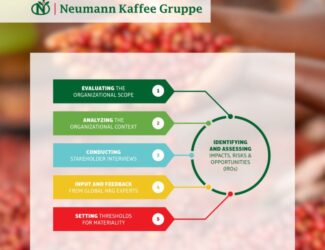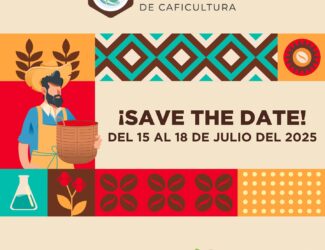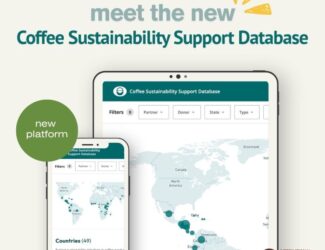
Launch of Global Platform for Coffee Industry to Transform 40 Million Tons of Biowaste into Business Opportunities
The global coffee industry generates nearly 40 million tons of biowaste annually – equivalent to approximately seven times the weight of the Great Pyramid of Giza. Instead of ending up in landfills, these coffee by-products can be upcycled into a diverse array of products, ranging from cosmetics to health foods, and even bricks and packaging.
In light of these findings, detailed in a new report by the International Trade Centre (ITC), the International Coffee Organization (ICO), and the Center for Circular Economy in Coffee (C4CEC), the C4CEC has issued a global call for membership. The goal is to unite coffee sector stakeholders in employing circular economy approaches, thereby creating new income streams and job opportunities while addressing critical environmental challenges.
This initiative aims to bring together producers, small businesses, traders, roasters, and consumer-facing companies, particularly from coffee-producing countries, to unlock economic opportunities and tackle environmental issues. The platform also welcomes research partners, civil society members, impact investors, and international organizations.
The report, “Making a Case for Circular Economy in the Coffee Sector: Insights from the Multi-Stakeholders Working Group on Circular Economy in Coffee,” presents the results of a global survey conducted by the ITC Coffee Guide Network’s Working Group on Circular Economy. Key challenges identified include the lack of actionable knowledge, inadequate regulatory frameworks, and insufficient investment and public-private collaboration in implementing circular economy practices on a large scale.
To delve deeper into these findings and explore case studies, the upcoming webinar series, “(Re)Generating Value Through Circular Economy in Coffee,” will commence on 22 May.
The C4CEC aims to fill existing gaps by providing technical knowledge and fostering a collaborative platform with a scientific approach. This pre-competitive platform, designed to enhance the circular economy within the coffee sector, is supported by a global network of partners, including the Giuseppe e Pericle Lavazza Foundation, Politecnico di Torino, the University of Gastronomic Sciences in Pollenzo, the United Nations Industrial Development Organization (UNIDO), ICO, and ITC.
This collaborative effort, which integrates the public and private sectors, academia, and international organizations, originates from ITC’s Coffee Guide Network Circular Economy Working Group, the ICO Coffee Public Private Task Force, and academic methodologies from Slow Foods and Systemic Design. Interested parties are invited to apply for the first membership round by 31 May to gain access to this global network and its circular solutions.
Quotes:
Ashish Shah, Director, Division of Country Programmes, International Trade Centre: “Small businesses in coffee-producing countries stand to gain significantly from the circular economy model. It fosters bottom-up innovation and knowledge sharing, along with sustainable and inclusive value chains, market access, and responsible business practices. We invite all coffee stakeholders to join this platform.”
Vanusia Nogueira, Executive Director, International Coffee Organization: “Our planet has been calling for help for many years. We must seek solutions to our environmental and economic challenges to secure a better future for the next generations. The circular economy offers an innovative solution that can help farmers, governments, businesses, and consumers collaborate to create better jobs and income, reduce pollution, and combat climate change. The Center for Circular Economy in Coffee was launched as a pre-competitive platform to share experiences, lessons learned, and knowledge. The International Coffee Organization is proud to be a founding member of the C4CEC, aligning perfectly with our mission.”



